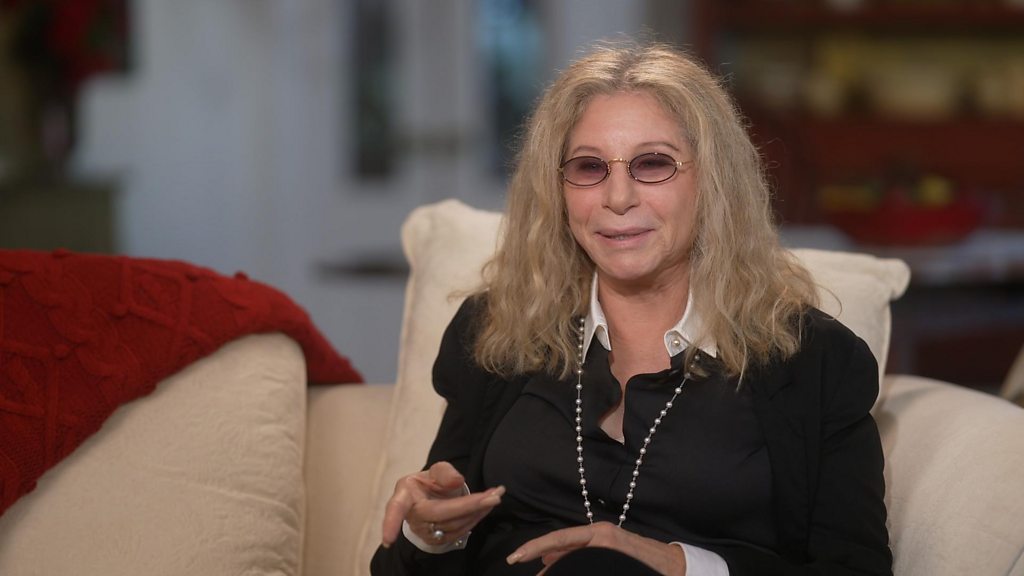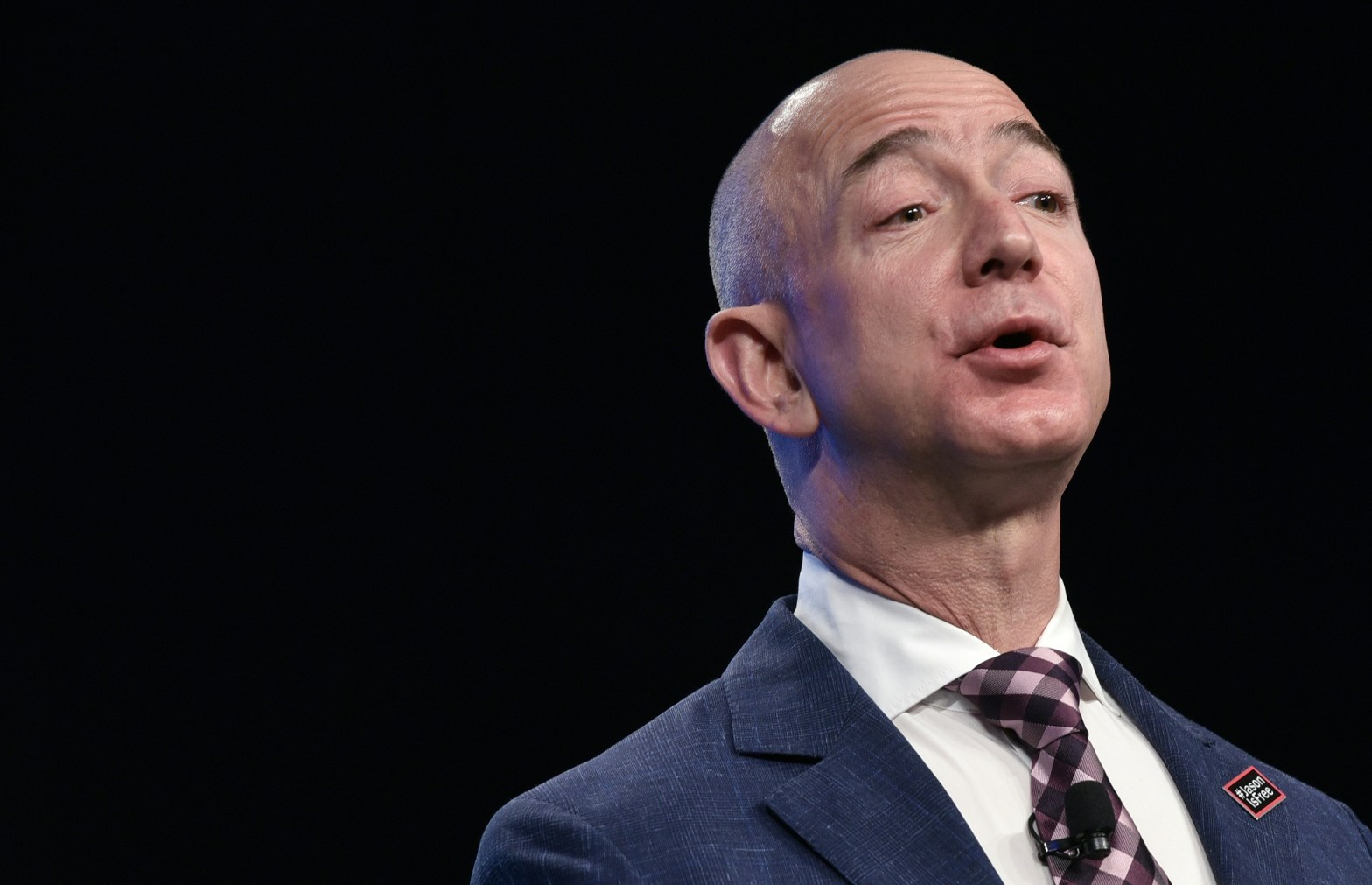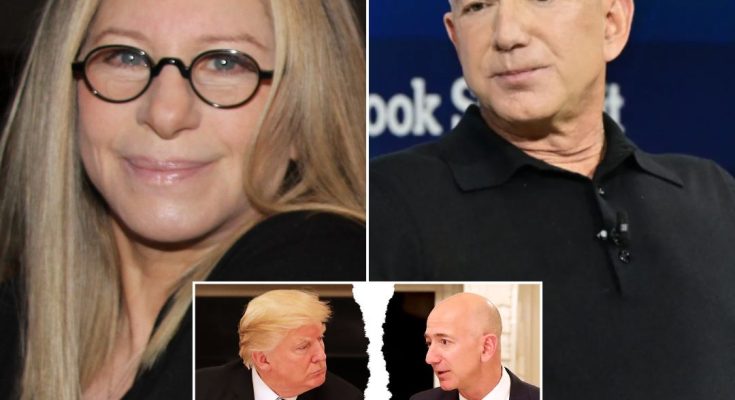
The entertainment world stood still when Barbra Streisand, the legendary singer and actress, released a statement that rippled far beyond music. In a powerful declaration posted on her official website, Streisand announced she would remove all of her music and collaborations from Amazon, condemning what she called Jeff Bezos’ “quiet alignment” with President Donald Trump.
“Wake up, Jeff,” her statement began—simple words that carried the weight of a thunderclap. “You support Trump, you support hate. I cannot be a part of that.”
Within minutes, social media exploded. Fans flooded her pages with messages of support, while critics accused her of overreach. In one stroke, Streisand had ignited a storm that blurred the lines between art, business, and politics.
Amazon, blindsided by the announcement, issued no immediate comment. Insiders described the company’s executive floor as “scrambling” to respond. One anonymous source close to the situation said, “No one saw it coming. She didn’t hint, she didn’t negotiate—she just pulled the plug.”
The shockwaves reached Mar-a-Lago within hours. Donald Trump, never one to stay silent, posted a response on Truth Social calling Streisand “another out-of-touch Hollywood liberal desperate for attention.” The remark drew cheers from his base—but Streisand wasn’t finished.
That night, she responded across her social channels with eight calm, piercing words:
“I’ve had attention my whole life. I want truth.”
It was a quiet rebuttal that landed louder than any insult. Commentators across networks replayed those words as if they were lyrics to a national reckoning.
Behind the headlines, Streisand’s decision carried heavy implications. Her full catalog—spanning six decades, from The Way We Were to Guilty—had long been among the most streamed on Amazon Music. Pulling that library wasn’t just symbolic; it struck at the intersection of art and commerce. Industry analysts estimated that her exit could cost Amazon millions in licensing revenue and signal to other high-profile artists that political conscience could outweigh convenience.

But to Streisand, it wasn’t about numbers. Close friends told Variety she’d been wrestling with the decision for months, increasingly uneasy about tech corporations she believed were “trading silence for profit.” One longtime collaborator said, “Barbra doesn’t do half measures. When she feels something violates her values, she acts—completely.”
By the next morning, hashtags like #WakeUpJeff and #StreisandStand dominated the top trends on X. Fellow artists chimed in—some applauding her courage, others worrying that “politics shouldn’t punish platforms.” Taylor Swift reportedly reached out privately to express solidarity, while a veteran producer called her “the conscience of a generation refusing to fade.”
Meanwhile, in Silicon Valley, reactions were split. Some insiders privately dismissed the move as “celebrity theater.” But others saw it as a sign of a larger cultural shift—an age where transparency and moral stance were becoming just as valuable as innovation.
Streisand’s supporters note that this isn’t the first time she’s taken a principled stand. From LGBTQ+ rights to climate change, she’s long used her platform to call for empathy and accountability. But this, observers said, felt different—more direct, more personal. One journalist put it succinctly: “She didn’t just sing truth to power. She looked power in the eye and withdrew her song.”
As of late evening, Amazon’s press office finally released a brief statement: “We respect all artists’ creative choices and hope for continued dialogue.” But by then, the cultural moment had already passed them by. The internet was quoting Streisand’s eight words like scripture.
For Streisand, it was a return to form—a reminder that true icons don’t follow the noise; they create it. As she wrote in her closing line that night: “Art must live with conscience, or it isn’t art at all.”
And with that, Barbra Streisand didn’t just remove her music from Amazon—she added a new verse to the story of artistic integrity in an age of moral compromise.



